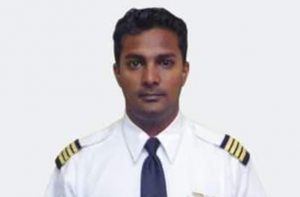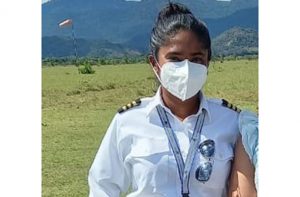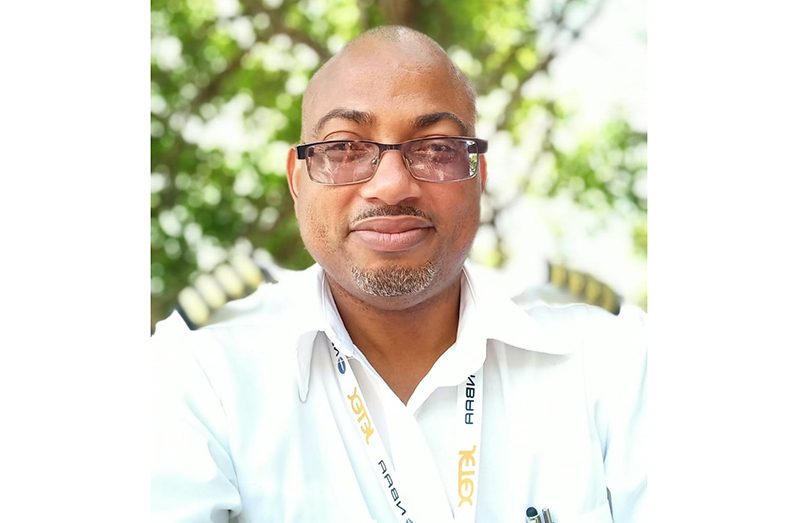NOTING the urgent need for a proper search-and-rescue mechanism and the need for proper maintenance of airstrips at interior locations as unaddressed issues severely affecting the aviation sector in Guyana, pilots are praising the formation of the Guyana Pilots Association (GPA) to collectively address long-standing issues.
The body was incorporated in December 2019, and has put in place an executive headed by the President, Paul Ramdat. It is also currently in the process of working on its constitution, and hopes to also meet with officials of the Guyana Civil Aviation Authority (GCAA), Ministry of Public Works (MoPW) and other necessary agencies to begin lobbying for better conditions for pilots.

“The GPA was primarily formed to represent the interests of our pilots as it[sic] relates [sic] to their safety, security, personal welfare and way of life. [It] is not a union and cannot fight any personal grievances between pilots and their employers, neither do we intend to undermine the work of our GCAA,” a statement from the GPA said.
The association’s current objectives include promoting fraternalism among pilots in Guyana, both private and government; to provide educational programmes with reference to aviation-related issues, policies and possibilities; to urge, support and advocate the passage of legislation and regulations affecting pilots in Guyana; to participate in research in aviation-related matters that will contribute to the advancement of the piloting profession in Guyana; and to participate in search-and-rescue operations, among others.

“The pilots in Guyana, we work in really rough conditions and over the years there hasn’t been any representation from us on our side. There’s the GCAA that looks at the companies, but nothing representing us, so we vowed to change that,” explained Ramdat, who has been flying for the past 10 years, and is a Line Training Captain at Trans Guyana Airways.
A collective body to represent pilots’ interests has been a long time coming, and though previous attempts were made, nothing concrete had materialized; however, many of the pilots were deeply appalled at the treatment of a pilot who was involved in an accident and decided that enough was enough.
“There was an issue with how a particular pilot was treated after an accident, where his medical attention was delayed because the investigators wanted him to go in their custody for drug and alcohol-testing, even before dealing with the pain he was feeling and injuries he had suffered. I think that was one of the things, we were really upset about that,” commented Learie Barclay, Director of Operations for Roraima Airways. Barclay boasts some 21 years experience as a pilot, and is a member of the GPA.
Leading the issues that the association hopes to lobby for is the state of Guyana’s search-and-rescue infrastructure, or lack thereof.
“Instead of search and rescue in Guyana, we have search and recovery, because it takes so much time to get to you [and] when they get there, all they can do is recover your body from the jungle floor, by the time they get there you’re dead.
“So that is a real burning issue on our part. You are going to work and you want to know that you would be taken care of if something happens,” Barclay told this newspaper.
His sentiments were shared by his co-worker, Shelly Dookram, who is also the GPA secretary.
“Search and rescue is a big thing for us; up to this day we can’t locate a captain who went missing. It’s a scare for you coming out of your house going to fly, and if you get into an accident you don’t know how fast they would respond. Sometimes the deployment of pilots to go look is not as fast as it should be. And there is no proper company that has the technology on board to locate you in quick instances instead of days, so search and rescue is a big priority,” Dookram expressed.
The pilots are also calling for improvements in some of the airstrips in the hinterland locations.
They’re [airstrips] not all bad, but overtime they have deteriorated. It’s an ongoing issue. It may not be just the airstrip has the problem, sometimes its animals on the runway, or conditions that happen and we are looking for the Ministry of Public Works to deal with it, so it would be good to have a collective voice to go to them rather than one person,” shared Captain Francis Camacho, Deputy Chief Pilot at Trans Guyana Airways.
Camacho further noted that the lack of proper weather reporting at the airstrip locations is also affecting the pilots.
“We don’t have a lot of weather-reporting stations. Right now how it works is you call up somebody in the interior and ask them how is the weather, and they will give you it in a layman’s terms. But in aviation, there are specific terms you are supposed to use; however, we don’t have that at any facility outside of Timehri [Cheddi Jagan International Airport] and Ogle [Eugene Correia International Airport],” he explained.



.jpg)









